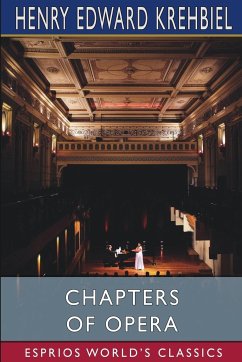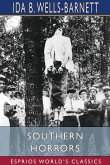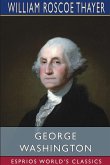Henry Edward Krehbiel (March 10, 1854 - March 20, 1923) was an American music critic and musicologist who was music editor for The New York Tribune for more than forty years. Along with his contemporary New York critics Richard Aldrich, Henry Finck, W. J. Henderson, and James Huneker, he was part of the first generation of American critics to establish a uniquely American school of criticism. A critic with a strong bend towards empiricism, he frequently sought out first hand experiences, accounts and primary sources when writing; drawing his own conclusions rather than looking to what other writers had already written. A meliorist, Krehbiel believed that the role of criticism was largely to support music that uplifted the human spirit and intellect, and that criticism should serve not only as a means of taste making but also as a mode to educate the public.
Hinweis: Dieser Artikel kann nur an eine deutsche Lieferadresse ausgeliefert werden.
Hinweis: Dieser Artikel kann nur an eine deutsche Lieferadresse ausgeliefert werden.








